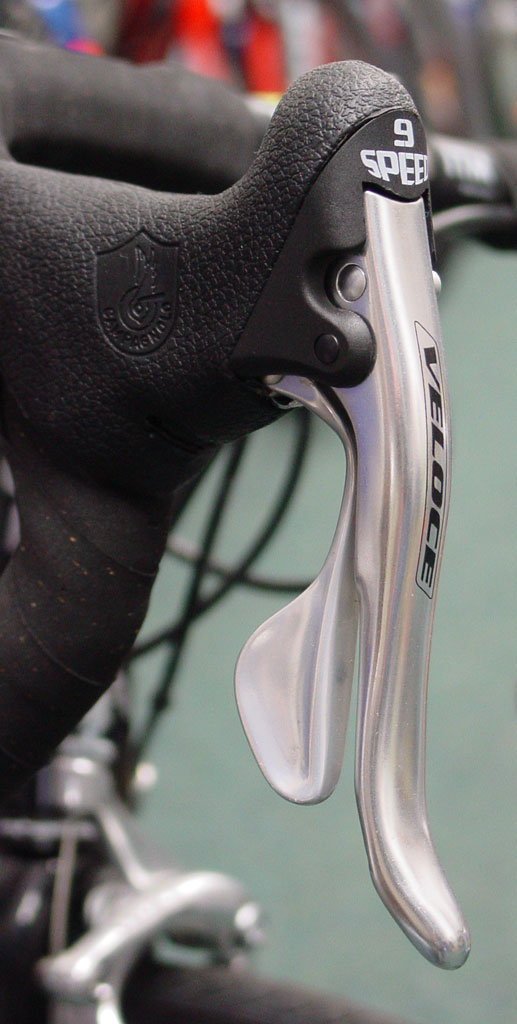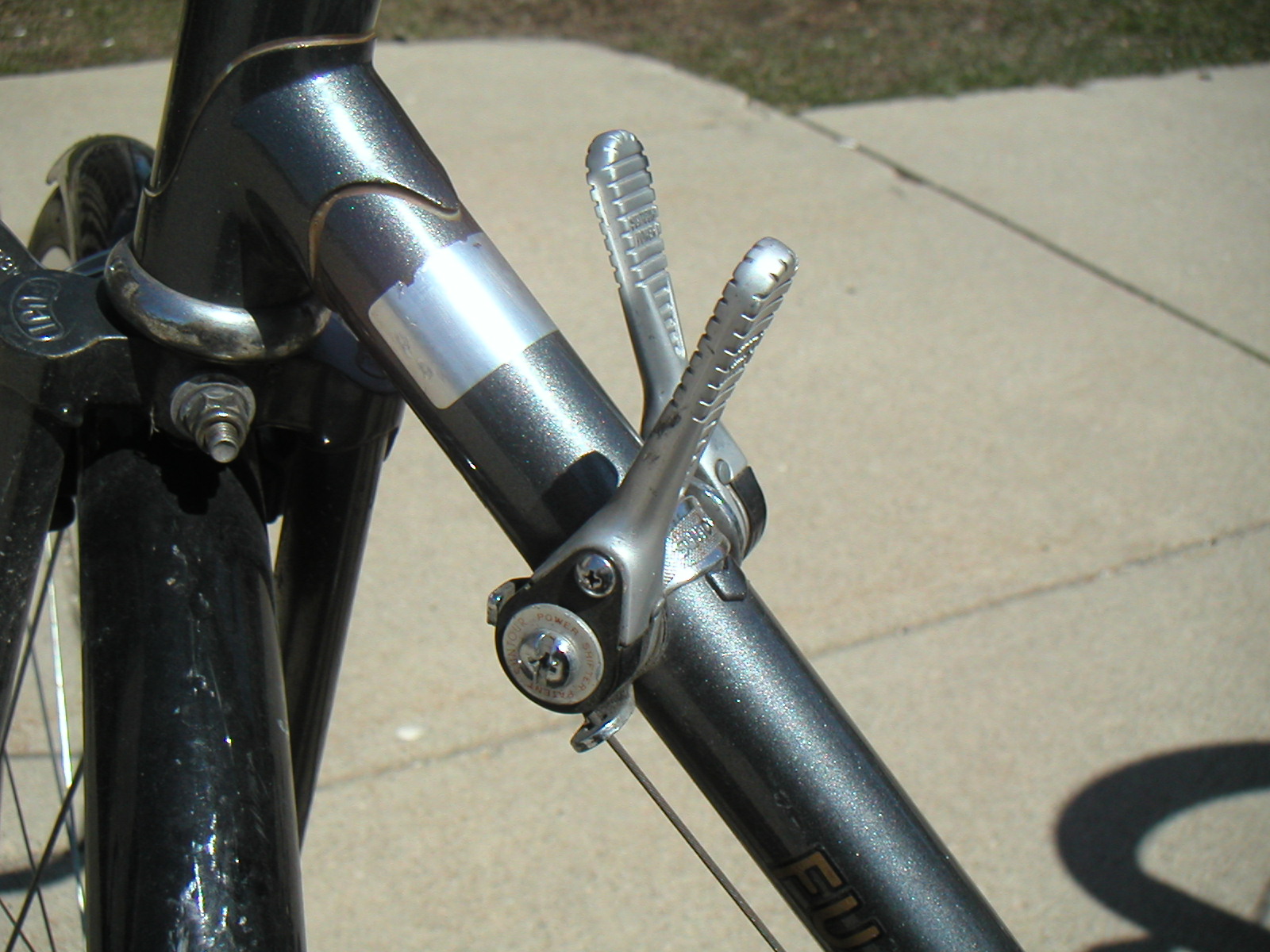I've been riding a mountain bike for years, but I prefer to go longer distances on paved ground, so I think a road bike would be better. When I ask what is a good bike, I don't need brands or models - more like what components of the bike should I look for, and what should I avoid? Additionally, is it necessary to "go big or don't go at all" as far as spending - getting a real good quality road bike for $500 to a few thousand, or should I cheap out on a $100-200 road bike, as it is my first, then get a better one when I'm more experienced?
-
how far and how often will you be riding– IanCommented Sep 22, 2010 at 15:48
-
3you could consider just putting slicks on your mountain bike– TimCommented Sep 22, 2010 at 17:09
-
I'd prefer a longer ride than a shorter, tougher ride. On weekends, I'll go on 30-40 mile rides on my mountain bike, just on bike paths. On week days, i go around 10-15 miles, and go about 3-4 days a week through the spring/summer/fall. I don't know anything about putting slicks on a mountain bike. My current bike (somewhat shamefully) is a walmart schwinn that I got 2 years ago before going to college, and have used it a lot.– xdumaineCommented Sep 23, 2010 at 0:14
-
@srank I approved the edit because its technically correct, but really a minor edit for stuff like that isn't adding any value. We know what OP means, even if the formatting and capitalisation is not perfect. Minor edits detract.– Criggie ♦Commented Jan 14, 2017 at 18:48
6 Answers
At the beginning of the summer I just bought an old Norco bike. I have had tons of fun on it. I watched Kijiji (similar to craigslist) every day for a month and eventually this bike came up. It had never been ridden (there was not even a scratch on it) and the price was only $75 Canadian.
Comparing my Norco to a friends $3000 Trek, here is what I found:
- The difference in weight between the bikes was less dramatic that I expected. The newer bike weighed maybe 70% of what the older bike weighted.
- The newer bike had a much better shifting system. The shifters where on the brake levers. The older bike has shifters on the downtube. To shift gears you need to remove your hand from the bars and reach down to the down tube.


- The hoods on the newer bike are more comfortable for longer rides.
- The newer bike has significantly more gears. This is a pro and a con. The older bike has only 6 gears on the back and 2 on the front. One advantage to this is that the gears can be substantial thicker. I have heard that these gears will never wear out.
- I am not scared to ride the older Norco to school and lock it up while I am working. I would never do that with the more expensive bike.
- I had a crash on the older Norco the second day I was riding it that resulted in the the front wheel being destroyed. Replacing it cost me $30. On the expensive bike god only knows what that crash would have cost.
- The newer bike has some carbon in the frame. In theory this should reduce the road vibration (and other things??). The older bike is made entirely out of steel.
In conclusion, if you want to race you will need the better bike. If you want to have fun, be active and go fast I think that the older road bike is an excellent entry point. Probably I will invest in a better road bike at some point but I will defiantly still keep this bike to make grocery runs and ride to school. (Maybe I will convert it to a single speed).
Things to consider are that when you buy a new bike it is a mix of different components, which are then packaged together and you receive a discount on the sum of the parts. This means that different manufacturers attempt to save money by using cheaper items for certain pieces of the overall puzzle.
The major headline items are the frame, gear system, brakes and wheels - everything else is (relatively) cheaper. So consider the things that are easy to change when you feel like upgrading. It's trivial to change the wheels, it's harder to change the brakes, harder still the gears and a new frame means a total rebuild.
So that's the priority when considering a bike.
- Make sure the frame fits well - ideally it will be perfect, but different uses require different frame sizes/geometries (time trials, road racing, training, commuting, leisure rides) so perfection means different bikes.
- Choose the gearings and brakes - you don't want to get into a huge Shimano vs. Campag Vs SRAM debate, though - frankly they're all much of a muchness unless you know a lot more than I do
- Wheels are supremely important, but also easier to change. Deeper rims are faster, having fewer spokes is generally faster, lighter is better. And you can spend as much on a pair of wheels as a second hand car.
- Everything else is a bonus and easier still to change (saddles, handle bars, cranks, etc.)
At each stage spend as much money as you feel you can, you will always be able to spend more. But ultimately for a new machine it isn't worth building your own, you will get a better deal buying it whole and complete, but you should purchase with half an eye on what bits they've skimped on and which you can upgrade down the line.
-
Shifters are also expensive to upgrade, and I'm not sure whether or not you include this under your "gears" category. Thus, it's hard to change the number of gears (say, from 7 sprockets to 10), but replacing a cassette is relatively cheap.– amcnabbCommented Jul 5, 2012 at 19:19
-
The most critical thing is that it fits you well. You don't need to spend a lot of money -- in fact, I'd recommend against it for your first road bike. But a basic bike that fits you well will feel fun and will get used. And as you gain more experience with it, you'll know what to change/upgrade if you feel the need to buy a more expensive bike down the road.
-
This makes a lot of sense. Its just hard for me to justify spending <$1000 on a bike that I'm not sure I'll even like, because I haven't ever ridden this kind of bike before.– xdumaineCommented Sep 23, 2010 at 16:01
-
2Then... See my post a by an older $75 bike on Craig's list! bicycles.stackexchange.com/questions/1121/… Commented Sep 23, 2010 at 17:16
Typically the cutoff point (I think) for a quality bike is in the $1000 - $1200 range. You're often looking at the same frame as on the $2000 model but with lower grade components. It's always seemed easier on my bank account to slowly upgrade components.
Since I'm talking retail you may be able to find something in the $500 range on a site like Craigslist. In fact I did that this summer. I purchase a Trek 1.5 from last year for $650 (retail is about $1200 Canadian).
I would say that $100 - $200 is much too low to purchase a bike of any type of reasonable quality unless it fell off a truck (stolen) or you happen to know someone that has a bike fetish and is willing to part with one to keep their significant other around.
Another good question was asked specifically about purchasing from Craigslist that would probably inform you if you decide to go that route. What should I look for when buying a used bicycle?
-
I haven't shopped for bikes in quite a while, but took a quick look at some major brands. There are some very decent bikes to be had in the $1200 - $1600 price range.– user313Commented Sep 22, 2010 at 16:57
-
3
Find a good LBS (Local Bike Shop) that deals in road bikes and has a used bike section. They might not have something for you right now, but if you talk to them, tell them what you are looking for, try some new bikes to get a really good handle on the size you are needing, they may just give you a call when the right trade-in appears.
I've done exactly this - having broken an old MTB frame after 2500 km on it, I decided to buy a road bike.
Searching and researching and browsing suggested 105 level components would be a good floor, and I had a preference for a disc brake on the front. Pricing worked out around $2200 NZD for an aluminium and about $2500 for the same thing in carbon.
Instead I bought a 1998 road bike for $100 from trademe (the local ebay) and its great. I ride further and faster.
You'll end up riding 5 km/h faster on average, and your climbing times will drop by ~10-20%.
Answer: Comfort makes for a good road bike.
Comfort comes from a good body position, so bike fit is more important on a road bike than a MTB. On an MTB you're up and out of the saddle a little more, on a road bike you maintain a fairly similar position a lot.
Smoother tyres help - you can go full slicks on a road bike, but it will be terrible off sealed road (gravel roads are not fun) and a patch of gravel on the road can surprise you.
Road bikes have hard tyres too - tube air pressures are 100+psi and make for a hard ride. In a new bike I'd look for steel or carbon forks, to take the rattly edge off the ride. My aluminium forks are "buzzy" and that leads to hand numbness.
Consider hanging out for something with Brifters (integrated brakes and shifters), if that's what you want to try. Downtube shifters were good back in the day, but you're trying ideas for a new bike - nothing has downtube shifters any more.
I suggest you look for a good used road bike, ride it for some months, and refine your expectations and requirements. I still want a front disc brake, but it can wait.
-
2About a year later, update. I have done 6,500 km my "cheap" road bike, and have learned a lot. My belly has shrunk to the point I can use the drops for 5-10 kilometres at a time. I have competed in a 100 km road race and turned in a time of 5 hours 10 minutes (there were lots of hills, ok?) and have entered for this year's race. New tyres, shorter quill stem, and the bike fits me nicely. And there's something about passing carbon-fibre cycle riders on an almost 2 decade-old bike, specially where the design looks every bit of its age.– Criggie ♦Commented Jan 14, 2017 at 10:15
